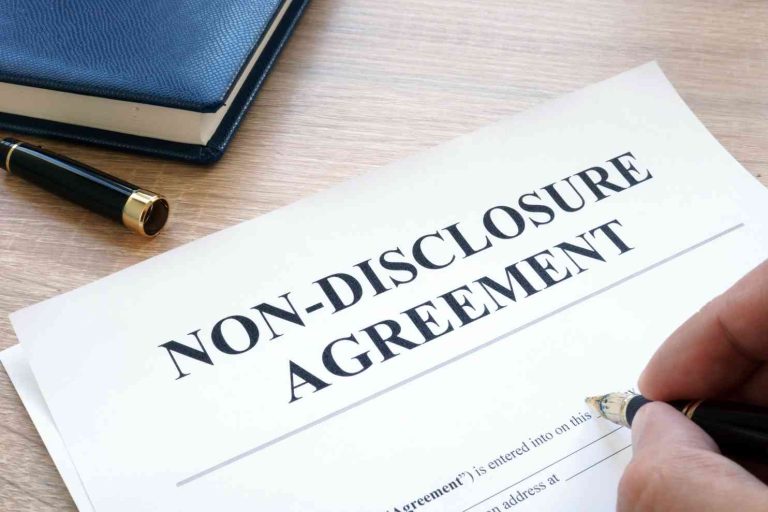White-label services have revolutionized the way agencies operate. By partnering with third-party providers, businesses can offer high-quality services under their own brand without handling the production directly. However, when entering such partnerships, safeguarding sensitive information is crucial. This is where a structured contract becomes necessary. In this blog, we’ll explore why a well-defined agreement is vital for protecting intellectual property, client data, and other critical business information.
Understanding White Label Contracts
A white label agreement is a legal contract between two parties: one that creates a product or service and the other that rebrands it as their own. Agencies often rely on these contracts when outsourcing services like SEO, digital marketing, or software development. The terms help protect both parties by setting clear expectations and outlining confidentiality clauses to prevent misuse of shared information.
Why a Strong Contract is Necessary
Intellectual Property Protection
Intellectual property is one of the most valuable assets for any business. When agencies partner with service providers, they often share proprietary information. A well-structured contract ensures that the partner cannot misuse or disclose this intellectual property, preserving the agency’s competitive edge.
Client Data Confidentiality
Handling client information comes with significant responsibility. The partnership terms should explicitly establish rules to protect sensitive data, making it clear that the provider is prohibited from unauthorized disclosure or misuse. This maintains trust and prevents potential legal issues.
Prevention of Unauthorized Disclosures
Without a contract, there’s no legal guarantee that your business’s confidential information will remain protected. Clearly defined terms ensure that both parties are bound to confidentiality, minimizing the risk of leaks or unauthorized disclosures.
Key Components of a Strong Contract
A well-drafted agreement typically includes several key elements to ensure a solid legal foundation
:
- Confidentiality Terms: Specifies what information must remain private.
- Duration: Clearly outlines how long the agreement is valid.
- Obligations of Each Party: Details the responsibilities of both parties.
- Termination Clauses: Defines the conditions under which the contract can end.
Protecting Your Business with Legal Agreements
Establishing Legal Boundaries
A well-drafted contract defines the limits of the relationship between the agency and the provider. It ensures both parties respect confidentiality and avoid potential legal disputes.
Reducing Risks
The primary purpose of these agreements is to safeguard sensitive data. Whether it’s intellectual property or client details, a solid contract prevents data leaks, misuse of proprietary information, and other issues that could harm your business’s reputation.
Securing Client Relationships
Having a legally binding agreement reassures clients that their sensitive information is protected. This fosters strong, long-term relationships built on trust.
Using a Pre-Designed Agreement Template
If you’re unsure about drafting an agreement, using a template can save time and effort. Industry-specific templates help agencies quickly customize contracts to suit their needs, ensuring that all necessary clauses are included.
Including NDAs in White-Label Partnerships
Often, a Non-Disclosure Agreement (NDA) is included as part of the partnership terms. An NDA provides an extra layer of protection by legally binding both parties to keep shared information confidential. Whether you’re entering a software-based contract or a general service agreement, including an NDA is essential to safeguarding business-sensitive data.
How to Obtain a Strong Business Agreement
- Consult a Lawyer: A legal expert can help draft a custom contract that aligns with your business needs.
- Use Templates: Various online platforms offer templates that can be modified to suit specific industries.
- Third-Party Services: Some agencies specialize in providing white-label legal services and can create tailored agreements.
Why Legal Agreements Are Crucial for SaaS Businesses
A SaaS-specific contract is particularly important for software businesses. Since SaaS companies often rely on partners for core technology, protecting intellectual property becomes even more critical. A well-structured agreement ensures that software assets and associated intellectual property are safeguarded against misuse.
The Benefits of a Well-Defined Agreement
Legal Clarity
A formalized contract provides clear legal protection, ensuring that both parties understand their obligations, responsibilities, and limitations.
Client Trust and Retention
Clients feel more secure knowing their data and intellectual property are legally protected, strengthening relationships and encouraging long-term collaboration.
Scalability
By setting clear legal terms, a structured agreement makes it easier for businesses to expand operations while ensuring intellectual property, client data, and other assets remain secure.
FAQs
Q1: What does a white label agreement typically include?
It generally covers confidentiality clauses, intellectual property protection, responsibilities of each party, and termination conditions.
Q2: How can I customize a pre-designed template?
Modify the terms based on your specific business needs, adjusting confidentiality clauses and defining the scope of services.
Q3: Is an NDA necessary in a white label contract?
Yes, an NDA is often included to ensure that all sensitive information remains confidential and is not disclosed to unauthorized third parties.
Conclusion
A well-drafted white label agreement is a critical tool for any agency or business looking to partner with a third-party provider. It ensures the protection of sensitive information, fosters trust, and sets clear terms for collaboration. Whether using a pre-designed template or drafting a custom contract, prioritizing security and confidentiality is essential. For more information, visit vSplash Techlabs, Inc.
